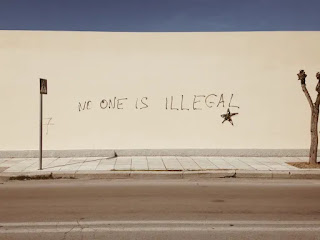Italy's Removal of Lesbian Mothers' Names Highlights Backward Trend in LGBTQAI+ Rights, Affecting Us All
by Oana-Maria Moldovan
Italy's recent actions regarding LGBTQAI+ rights have sparked concern as the government removes the names of lesbian mothers from their children's birth certificates, leaving only the biological mothers listed.
This move is part of a broader crackdown on LGBTQAI+ parents' rights, initiated after right-wing Prime Minister Giorgia Meloni's announcement in March directing state agencies to no longer register children of same-sex couples.
Currently, around 27 families in the northern city of Padua are affected by this change, with 33 children at risk of losing legal recognition of one of their parents.
This issue becomes even more complex when considering scenarios such as the death of the biological mother or the end of the relationship.
In case of the biological mother's passing, the non-biological parent could lose custody rights, potentially resulting in children being placed with biological family members or even into foster care.
This situation highlights Italy's prioritization of erasing LGBTQAI+ rights over ensuring stable and loving family environments for these children.
One couple who exemplify these challenges are Vanessa Finesso and Cristina Zambon.
Residents of Padua, the couple used Zambon's egg and Finesso's womb for IVF treatment in Spain.
Finesso's concerns stem from her battle with cancer, worrying that her wife might lose custody of their daughter if she were to pass away.
The implementation of this new policy has prompted some same-sex couples, like Finesso and Zambon, to contemplate leaving the country.
Italy's regression in LGBTQAI+ rights mirrors a larger global trend. While Italy targets queer families, the United States has seen a rise in anti-trans and anti-gender non-conforming sentiments, leading to restrictions on trans individuals' access to healthcare.
The Anti-Defamation League (ADL) and GLAAD reported that "between June 2022 and April 2023, ADL and GLAAD documented at least 356 anti-LGBTQ+ extremist and non-extremist incidents motivated by hate across the United States", reflecting a concerning trend.
In Europe, countries like Poland and Hungary have adopted anti-LGBTQ+ measures also.
Poland was named the "worst country in Europe to be gay" for three consecutive years, while Hungary enacted a law prohibiting the "promotion" of homosexuality or gender identity to minors.
Similarly, nearly 70 countries worldwide criminalize homosexuality or gay sex, with harsh laws promoting division, exclusion, and even hate crimes against LGBTQAI+ individuals.
For example, not hiring someone based on their sexual orientation is completely legal and is a common occurrence in Eastern Europe and Western Asia.
Some nations are dismantling punitive measures related to homosexuality, like Singapore and India, that are rooted in colonial history.
In February of 2022, Singapore's highest court rejected a legal challenge against the country's prohibition of gay sexual activity.
While Western countries face setbacks, the East often remains silent or resists change, highlighting a global disparity in LGBTQAI+ rights.
The current situation in Italy, Poland, Hungary, and the USA suggests that some LGBTQAI+ rights were only superficial and that genuine progress has yet to be achieved.
This reality, coupled with the lack of concern for LGBTQAI+ rights in more traditional and religious-based countries, underscores the urgency of addressing these issues on a global scale.
Edited by Emily Duff




